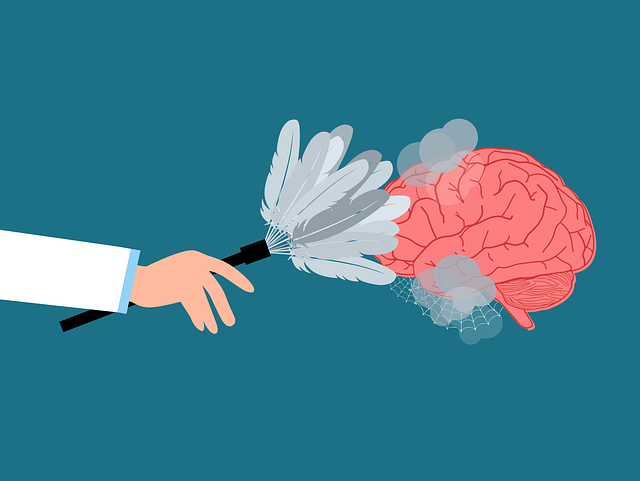Mental wellness coaching programs are gaining prominence as accessible support for managing mental health, complementing the limitations of traditional Parker Independent Medical Evaluations (PIMEs) therapy. These programs integrate evidence-based practices and personalized guidance, fostering resilience through tailored coping strategies. Efficient PIMEs, combining self-report, clinical interviews, and physical assessments, enable coaches to design impactful therapy sessions. Through active listening, goal setting, and regular assessments, including PIMEs, these programs promote positive thinking and behavioral changes, reducing anxiety and enhancing coping strategies while ensuring long-term success through participant feedback.
In today’s fast-paced world, prioritizing mental wellness is more crucial than ever. This article explores the development of comprehensive Mental Wellness Coaching Programs, a game-changer in fostering individual growth and resilience. We delve into the rising demand for such programs and their impact on overall well-being. Additionally, we provide insights on designing effective Parker Independent Medical Evaluations for therapy and implementing successful coaching strategies, emphasizing the importance of tailored interventions for optimal mental health outcomes.
- Understanding the Need for Mental Wellness Coaching Programs
- Designing Effective Parker Independent Medical Evaluations for Therapy
- Implementing and Measuring Success in Mental Wellness Coaching
Understanding the Need for Mental Wellness Coaching Programs

In today’s fast-paced world, mental wellness is an increasingly pressing concern for individuals across various demographics. The demand for accessible and effective support has led to a growing recognition of Mental Wellness Coaching Programs as valuable resources. These programs play a pivotal role in empowering individuals to take control of their mental health, especially when traditional therapy might not be readily available or suitable for everyone. By integrating evidence-based practices, these coaches provide personalized guidance, fostering resilience and coping strategies tailored to each client’s unique needs.
The need for such initiatives is further underscored by the limitations of conventional Parker Independent Medical Evaluations Therapy. While professional assessments are crucial, they often represent a snapshot in time and may not adequately address ongoing mental health management. Communication Strategies that promote open dialogue between clients and mental health professionals can significantly enhance care. Moreover, a comprehensive Risk Assessment for Mental Health Professionals is essential to ensure safe and effective coaching, aligning with Mind Over Matter Principles that emphasize the power of mindset shifts in fostering positive mental wellness.
Designing Effective Parker Independent Medical Evaluations for Therapy

Designing effective Parker Independent Medical Evaluations (PIMEs) for therapy is a crucial step in ensuring that mental wellness coaching programs are tailored to meet individual needs. These evaluations serve as a comprehensive assessment tool, allowing therapists and coaches to gain insights into clients’ psychological and physiological states. By integrating PIMEs into the initial stages of coaching, professionals can identify specific areas of focus, such as anxiety, depression, or trauma, which can be addressed through evidence-based practices. This strategic approach ensures that therapy remains relevant and impactful throughout the journey towards improved mental wellness.
A well-structured PIME should encompass various aspects of emotional well-being promotion techniques and stress reduction methods. It may include self-report questionnaires, clinical interviews, and physical assessments to capture both subjective and objective data. Incorporating these evaluations into the production of Mental Wellness Podcast Series can also be beneficial, as it allows for evidence-based content creation that resonates with listeners’ real-life challenges. Ultimately, effective PIME design empowers mental wellness coaches to deliver personalised interventions, fostering a supportive environment where clients can navigate their emotional landscapes and cultivate resilience.
Implementing and Measuring Success in Mental Wellness Coaching

Implementing mental wellness coaching programs involves a strategic approach that aligns with evidence-based practices. Coaches play a pivotal role in guiding individuals toward positive thinking and behavioral changes by utilizing techniques such as active listening, goal setting, and personalized action plans. The success of these programs is often measured through regular assessments, including Parker Independent Medical Evaluations, to track progress and ensure the interventions are effective and tailored to each individual’s unique needs.
A comprehensive evaluation process is key to gauging the program’s impact. By incorporating metrics that align with mental health policy analysis and advocacy goals, coaches can demonstrate improved outcomes in areas like reduced anxiety levels, enhanced coping strategies, and increased resilience. Furthermore, designing mental health education programs that foster open dialogue and equip individuals with valuable skills contributes to long-term success, as measured through participant satisfaction surveys and follow-up therapy sessions.
Mental wellness coaching programs are a vital tool for promoting holistic health, especially in today’s fast-paced world. By combining structured assessments like Parker Independent Medical Evaluations with tailored coaching strategies, we can effectively support individuals in managing stress, anxiety, and other mental health concerns. Measuring success through regular evaluations ensures that these programs remain responsive to each client’s unique needs, fostering sustainable improvements in their mental wellness journey.










